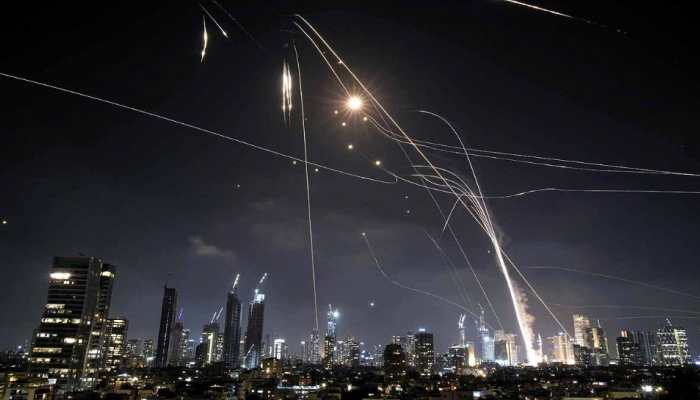What Iran Got Wrong: Five Lessons Tehran Must Lern From The 12-Day War With Israel
From its reliance on global allies to the limits of its missile arsenal, the conflict revealed vulnerabilities that Tehran can no longer ignore.
Trending Photos
)
New Delhi: The 12-day Israel-Iran conflict, though short, has delivered long-term consequences for Tehran – not just in terms of casualties or economic damage, but in deep strategic exposure. As missiles rained and alliances faltered, Iran found itself staring at a harsh reality check on multiple fronts. From its reliance on global allies to the limits of its missile arsenal, the conflict revealed vulnerabilities that Tehran can no longer ignore.
Silence of Russia, China
When Israeli jets began targeting Iranian defense infrastructure, the silence from Moscow and Beijing was deafening. Despite past military exercises and diplomatic warmth, neither Russia nor China stepped in with anything more than statements.
While Russia remained tied down in Ukraine, China chose to issue appeals for restraint. For Tehran, it was an awakening. The illusion of strong backing from major powers gave way to the truth that in a real crisis, Iran might stand alone.
Losing the Skies
Air superiority proved decisive and devastating. In the opening phase of the conflict, Israeli strikes dismantled over a hundred Iranian air defense systems. What followed was a one-sided air campaign, with Israeli fighter jets hitting targets across central Iran with limited resistance.
Iran’s reliance on older and imported systems became a critical weakness. The war has now forced a reassessment in Tehran’s military circles – the future demands domestic innovation, not imported nostalgia.
Missiles That Missed the Mark
Iran’s missile programme, once touted as a regional powerhouse, faced an uncomfortable test. Hundreds were launched, but most were intercepted or caused minimal damage. While a few managed to bypass Israeli defense systems – notably causing injuries in Be’er Sheva – the broader performance fell short of expectations.
Experts suggest this might push Iran toward investing in more advanced systems such as maneuverable warheads and hypersonic capabilities.
Security Breaches
Perhaps the most alarming revelation was the scale of Israeli intelligence penetration. Key IRGC commanders and nuclear scientists were killed in targeted strikes, raising questions about Iran’s internal security. How Mossad was able to gather such precise information, and possibly pre-position drones, is likely to trigger major overhauls within Iran’s intelligence agencies.
Tehran is now grappling with how to secure its most sensitive assets in an era of digital espionage and satellite surveillance.
Support That Never Showed Up
Iran’s regional allies – the so-called “Axis of Resistance” – failed to alter the course of the conflict. Whether it was Hezbollah in Lebanon or the Houthis in Yemen, their contributions were limited, scattered or ineffective. Hamas remained crippled, and Syria offered no significant engagement.
The war has cast a shadow on Tehran’s longstanding strategy of outsourcing its confrontation with Israel through proxy networks. Rethinking this dependence is no longer optional.
The human toll of the conflict was sobering: hundreds dead, thousands injured and billions lost in infrastructure damage. Key nuclear assets at Natanz were hit, though Fordow remained relatively intact. And yet, Iran’s leadership remained in place, and its core command structure survived – though rattled.
The war did not end Iran’s ambitions, but it has reshaped how it might pursue them. The path forward, analysts believe, will require Tehran to focus on indigenous defense production, cyber capabilities and diplomatic recalibration, especially as international sanctions tighten. The cost of complacency has never been higher.
Stay informed on all the latest news, real-time breaking news updates, and follow all the important headlines in india news and world News on Zee News.
Live Tv



